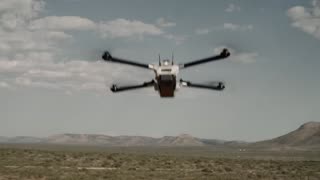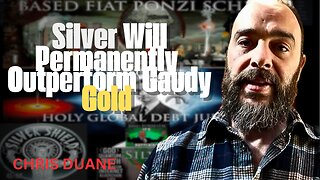Premium Only Content

Riders on the Storm The Doors
"Riders on the Storm" is a song by American rock band the Doors. It was released in June 1971, as the second single from L.A. Woman, their sixth studio album and the last with lead singer Jim Morrison. The song reached number 14 on the U.S Billboard Hot 100, number 22 on the UK Singles Chart, and number seven in the Netherlands.
Written by: Jim Morrison, John Paul Densmore, Robert A Krieger, Raymond D Manzarek
"Riders on the Storm" has been classified as a psychedelic rock, jazz rock, art rock song, and a precursor of gothic music. According to guitarist Robby Krieger and keyboardist Ray Manzarek, it was inspired by the country song "(Ghost) Riders in the Sky: A Cowboy Legend", written by Stan Jones and popularized by Vaughn Monroe. The lyrics were written and brought to rehearsal by Morrison, of which a portion of it refers to hitchhiker killer Billy "Cockeyed" Cook, subject of the 1953 film, The Hitch-Hiker. Manzarek noted that some lines express Morrison's love to his companion Pamela Courson. The track is notated in the key of E Minor; the main keyboard riff descends throughout the pitches of Dorian Mode scale, and features a progression of i–IV–i7–IV.
It is popularly believed that "Riders on the Storm" is the song that longtime Doors producer Paul A. Rothchild disparaged as "cocktail music", precipitating his departure from the L.A. Woman sessions, which was corroborated by guitarist Robby Krieger. Rothchild himself denied that claim, stating that he actually applied the epithet to "Love Her Madly". Following Rothchild's departure, longtime engineer Bruce Botnick was selected to take over production duties, alongside the Doors themselves.
"Riders on the Storm" was recorded at the Doors Workshop in December 1970 with the assistance of Botnick. Later in January 1971, after Morrison had recorded his main vocals, the group gathered at Poppi Studios to complete the mixing of L.A. Woman, at which Morrison then whispered the lyrics over them to create an echo effect. It was the last song recorded by all four members of the Doors, as well as the last song recorded by Morrison to be released in his lifetime. The single was released in June 1971, entering the Billboard Hot 100 the week ending July 3, 1971, the same week Morrison died.
Heidegger's influence
Speaking with Krieger and Manzarek, the German philosopher Thomas Collmer argued that the line "Into this world we're thrown" recalls philosopher Martin Heidegger's concept of "thrownness"—human existence as a basic state. In 1963, at Florida State University in Tallahassee, Morrison heard a lecture which influenced him, which discussed philosophers who dealt critically with the philosophical tradition, including Friedrich Nietzsche and Heidegger. In 2009, Simon Critchley dedicated his column in The Guardian to Heidegger's thrownness, and explained it using the aforementioned verse of the song. The connection between the thrownness into the world and a dog's life was anticipated by the anti-Heideggerian author Ernst Bloch in his main work The Principle of Hope (1954–1959).
Album: L.A. Woman
Released: 1971
Riders on the Storm
The Doors
Riders on the storm
Riders on the storm
Into this house we're born
Into this world we're thrown
Like a dog without a bone
An actor out on loan
Riders on the storm
There's a killer on the road
His brain is squirmin' like a toad
Take a long holiday
Let your children play
If you give this man a ride
Sweet memory will die
Killer on the road, yeah
Girl, you gotta love your man
Girl, you gotta love your man
Take him by the hand
Make him understand
The world on you depends
Our life will never end
Gotta love your man, yeah
Riders on the storm
Riders on the storm
Into this house we're born
Into this world we're thrown
Like a dog without a bone
An actor out on loan
Riders on the storm
Riders on the storm
Riders on the storm
Riders on the storm
Riders on the storm
-
 13:13
13:13
Psychological operations
8 days agoJust Between You And Me I Like To Rock Sign Of The Gypsy Queen April Wine
842 -
 1:02:21
1:02:21
The Dan Bongino Show
4 hours agoTrump Makes His BOLDEST Moves Yet (Ep. 2370) - 11/13/2024
668K1.98K -
 1:02:59
1:02:59
The Rubin Report
3 hours agoCNN Host Forced to Intervene as Guest Loses His Cool as Republican Calmly States Facts
72.6K45 -

The Boomer Effect
19 hours agoSocial Security - Simple and Smart
50 -
 24:06
24:06
Rethinking the Dollar
3 hours agoDigital Illusions of Wealth: Why Real Silver Matters More Than Ever!
3691 -
 1:37:01
1:37:01
Professor Nez
16 hours ago🚨LIVE President-elect Trump Meets with President Biden in the Oval Office
36.1K27 -
 2:00:38
2:00:38
Steven Crowder
4 hours agoLet that Sink In: This is why the Left Lost & Elon and Vivek Form New Trump Superteam
397K212 -
 DVR
DVR
Benny Johnson
3 hours ago🚨 DADDY'S HOME: Trump Meets Biden At White House LIVE Right NOW, Joe Surrenders Federal Gov to MAGA
100K153 -
 LIVE
LIVE
Midnight's Edge
3 hours agoThe TDS of our stars, and scandals of Wicked | MEiTM #639
262 watching -
 LIVE
LIVE
The Shannon Joy Show
20 hours ago🔥🔥COVID Democide Rages On Amidst The Political Circus! Sudden Kidney Failures Are Spiking As The Latest Hospital Horror. Live Exclusive With Researcher John Beaudoin🔥🔥
587 watching